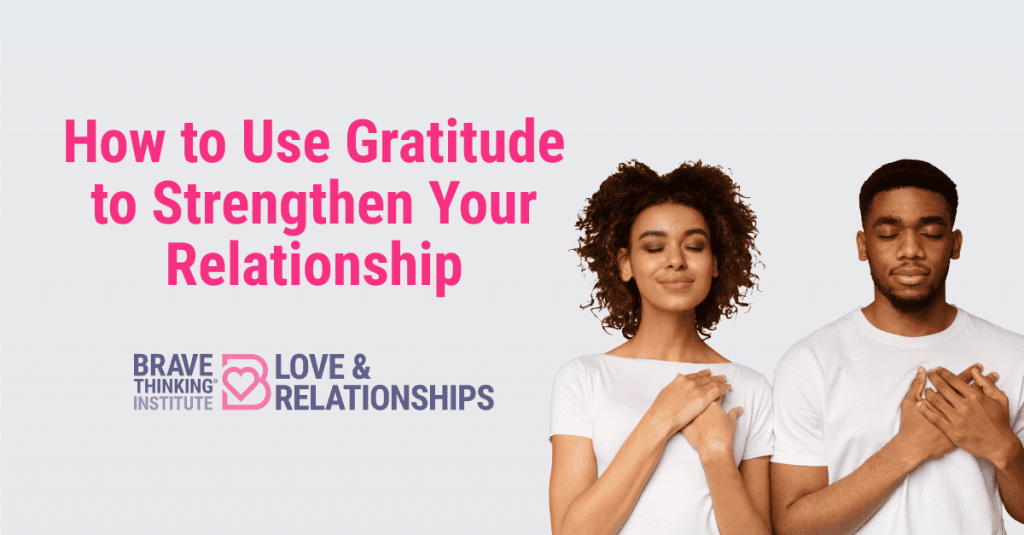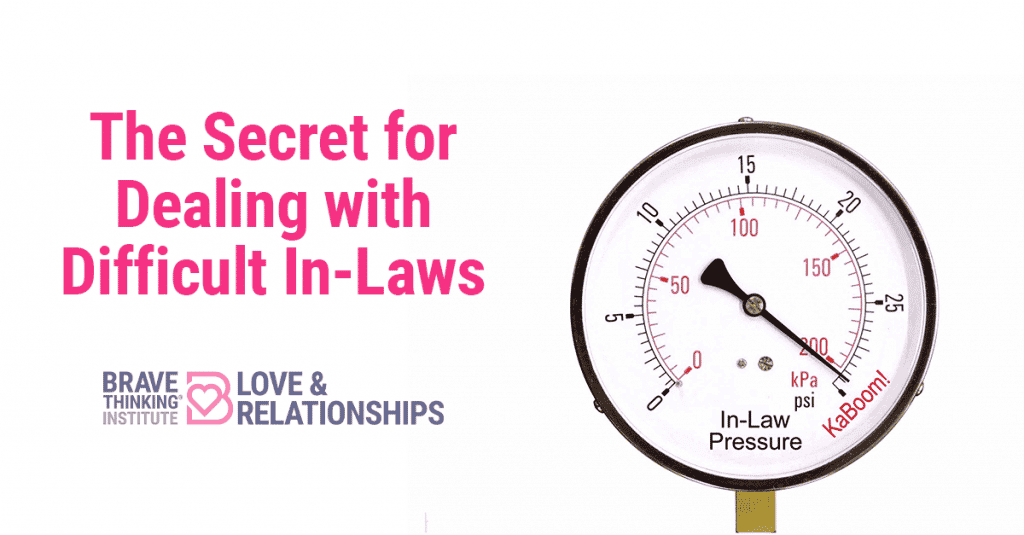Are you sabotaging your love life? Discover if you’re practicing any of the 4 horsemen of relationships here!
The 4 Horsemen: 4 Simple Factors That Sabotage Your Relationships
Strong relationships don’t just happen. They take work. And it’s work you should enjoy doing. But first you need the right tools.
You can’t fix a sink without a wrench. Well, I guess that depends on what’s wrong with the sink. But seriously, you can’t fix your relationship problems unless you identify them and use the right solutions!
Do you have a hard time getting past conflicts?
Do you find yourself getting angry and unable to work through the problems in a constructive way?
This is very common. A lot of people deal with the surface anger, but never resolve the real problem behind the anger. It’s difficult to see past anger when you’re in conflict discussions.

These factors can sabotage any relationship: romantic partnerships, sibling relationships, friendships, and even work relationships
Having a healthy, happy relationship means working on the factors that can sabotage you.
One great resource for me has been John Gottman of The Gottman Institute. He teaches the four horsemen of conflict conversations. This is a fantastic tool to make sure that your communication methods are healthy.
It’s also not something that most people automatically know. These are the types of methods therapists use. Once you understand them, the four horseman will help you see the unhealthy habits that are sabotaging your relationships.
What Are John Gottman’s Four Horsemen?
When you’re in a conflict, it can be difficult to understand why you’re reacting the way that you are. More than that, you don’t stop to understand where the other person is coming from. Anger is one of the most common ways people react to conflict.
But that anger isn’t really about being mad. There’s something behind the anger.
The anger itself isn’t bad, it’s there as a sort of red flag to grab your attention. Because below the surface of that anger, there are significant emotions.
If you address them in a healthy way, you can improve and deepen your relationships through conflict resolution. But only if you learn to deal with them in a healthy way.
The four horsemen of conflict communication are:
- Criticism
- Defensiveness
- Contempt
- Stonewalling
I want to expand on each of these factors so that you can identify them in your next conflict.
John Gottman and the Gottman Institute spent thousands of hours studying couples. They followed up with their subjects over time to record progress. According to their research, those four factors are predictors of divorce.
Once you recognize them, you’ll be able to apply the antidote to each factor as it appears.
1 – Criticism
There are differences of opinion that you need to agree on in any relationship. But there’s a difference between a respectful disagreement about something and criticism.
You’ll find that most of the difference is in the tone. No one likes to be criticized. You may find yourself on the giving or receiving side of this factor. Believe it or not, neither side is healthy.
With criticism, you’re hearing it as an attack. It’s a personal attack, too. It’s not just a gentle nudge that the other person doesn’t like something or would like to change something to suit their preference. What you’re hearing is a negative complaint about you as a person.
There are real reasons to complain or disagree about things in a relationship. It takes some compromise for both parties to come up with a solution. You want your partner or loved one to be happy. But you need to be happy, as well.
If you’re on the giving side of a criticism, I want you to pause. Do you really want to insult the other person? Are you upset by the thing you’re criticizing or something deeper?
I want you to stop and notice your words. Then play them back as if the other person said them to you. If you recognize it as insulting or attacking, you want to rephrase. Concentrate on fixing the issue, and not attacking the person.
2 – Defensiveness
I put defensiveness after criticism because it’s often the response to criticism! When someone criticizes you, you get defensive. This seems reasonable.
The reality is that defensiveness is never really honest. It’s your way of blaming the other person. We see defensiveness in young people very often because they haven’t learned to take constructive criticism and learn through experience yet. They often take any recommendation for improvement as an attack, even if it wasn’t meant that way.
In a relationship, defensiveness often comes out as playing the victim. “I’m not at fault. You are.”
If you find yourself getting defensive, consider what the other person is really saying. Is it an attack? Are they criticizing? Is there a better way to voice your needs without blaming them back?
3 – Contempt
Contempt is, unfortunately, very common today. A lot of mainstream humor is contemptuous. You might be one of the people who uses sarcasm as part of your way to make light of issues in the world.
There is a difference between humor and contempt. But a lot of people do push this boundary too far. Here’s a good rule: if you’re joking, it needs to be funny to both parties. The other person should laugh. If they’re not laughing, don’t blame them for not getting the joke. Take ownership of the fact that you may have hurt their feelings.
In the most severe sense, contempt can lean over into emotionally abusive behavior. Things like name calling, belittling, controlling statements, and making the other person feel small. These are serious issues. It’s not a healthy situation for anyone to be in or put someone they love in.
Even less serious forms of contempt can emotionally damage the person.
Remember that old schoolyard phrase, “Sticks and stones may break my bones but names will never hurt me”?
That advice was terribly untrue! Names and contemptuous words do hurt.
We’ve all said things in anger that we shouldn’t have and didn’t mean. If you have a negative interaction, it’s not the end of the relationship.
You want to make sure that you have more positive interactions than negative ones. And you definitely want to apologize if you’ve pushed over into hurtful insults.
4 – Stonewalling
Stonewalling is when you completely shut down and stop engaging. This can be exceptionally frustrating for your partner. You’re not validating their concerns or participating in the conversation. There’s no way to fix a conflict when one party refuses to come to the table.
Stonewalling is a reaction when you feel overwhelmed. High emotions can make you withdraw rather than deal with the confrontation. And while a cool off period before responding can be an excellent way to approach the issue, you don’t want to ignore the issue completely. It will just fester until one of you blows up or detaches from the relationship.
Lasting Relationships = Repairing After Conflict
All relationships have conflicts. In fact, it’s unhealthy NOT to address the things that bother you, too.
If something is bothering you in your work relationships, friendships, or romantic partnerships, you must communicate that. Not addressing conflicts isn’t a solution. In fact, avoiding the conversation will often make the conflict so big that it’s unmanageable.
At the Brave Thinking Institute, we have a policy to “shovel while the piles are small.” What that means is that we have a conversation as soon as we notice a conflict. This is a policy that everyone can adopt. If you have the discussion early, you can find solutions that fit everyone’s needs and goals.
When you wait to have the conversation, the problem becomes so large that it’s difficult to solve.
Not only that, but there’s a lot of stress in carrying around frustration or worry that you’re not naming.
If you don’t address the issues, you make up stories about what the other person thinks or feels. Those stories are almost never accurate or helpful. Cut the anxiety off before it begins. Have that honest conversation early!
Consider Their Perspective in a Negative Interaction
It’s easy to get frustrated or angry when your feelings are hurt. Conflict with another person often presents as adversarial.
But I want you to stop when you feel these types of negative emotions. When you notice that you’re using one of the four horsemen in your conflict communications, I want you to pause.
Now stop and think about what the other person is feeling. Understand that there’s a difference between intention and impact.
Every act, no matter how skilled or unskilled, is either an act of love or a call for love.
While the impact of the other person’s words or actions might be negative, or unskilled, is that their intention? It’s not. What they’re doing is loving you or asking you to love them, but in an unskilled way.
Now, how do you feel about negatively impacting that person, who you love and care about, in response? It doesn’t feel good. You don’t want to hurt people you love. They don’t want to hurt you, either.
Recognize that these are miscommunications. If you stop and notice that, you can change the discussion.
Some family members can be more difficult to cultivate relationships with because they’re negative. You can’t fix or change them but you can often find healthy ways to communicate for the strongest relationship possible.
What if HE Is Exhibiting the 4 Horsemen in Conflict Communication?
I’ve talked a lot about the four horsemen and how YOU can recognize these negative communication patterns in yourself. But let’s stop and talk about your man.
Is HE using one or several of the four horsemen communication styles?
You can only control your own actions. You can see that sometimes you’ve made mistakes because you didn’t understand the type of communication you were using.
Once you know better, you do better. When you realize how it was damaging to your relationship, you fix it. But, you can’t control whether or not your man fixes it.
I really want to talk about this because some of these traits are more than damaging. They can lean over into abuse and I don’t want anyone to put themselves in a situation to “settle” for being treated badly.
The four horsemen are huge red flags. If your man is open to discussing the actions, seeing why they’re damaging, and improving communication skills, that’s fantastic. Absolutely work through that with him.
But if your man doesn’t acknowledge he’s doing anything wrong. If he continues to treat you in a way that’s negative or toxic, even after you’ve addressed it, that’s not something you should ever put up with or overlook.
Some relationships will come to a close. And that’s okay. Learning the signs to tell if your relationship is over and the tools to build healthy relationships will help you create the best future for everyone.
Relationship Advice for Women | Healthy Relationships Start With You
You’ll hear this over and over, but the first tool to build a healthy relationship is to start with yourself.
All of the four horsemen start with your own feelings. You can identify them more easily, the things at the root of your anger, when you understand your own heart.
This means taking the time to recognize how you respond to conflict communication. Do you notice that you fall into one of the unhealthy four horsemen behaviors? Recognizing your responses will help you identify the emotions behind them.
Taking time to know yourself and build your self-confidence is an amazingly powerful tool. It will help you develop the healthy relationships you really want. But more than that, it helps you excel in every area of your life.
You’ll feel more positive about yourself. You’ll develop the skills to know when you need to voice your feelings about things that bother you. When you raise your vibration and feelings of worthiness, you automatically start to attract the people who are at your level who have the same high, positive vibrations.
This is the key way that you’ll attract that perfect partner, fantastic friendships, and amazing work relationships.
My free eBook, The 21 Day Love Affirmation Practice, helps you do just that.
You’ll get 21 days of love affirmations and exercises, so you can learn to clearly visualize the love you want in your life. And get ready. Because you’ll see the results in the way you feel and the people who flock to you.
Pick up your free copy today and commit yourself to 21 days that will change your self-love vibration.




Leave a Reply